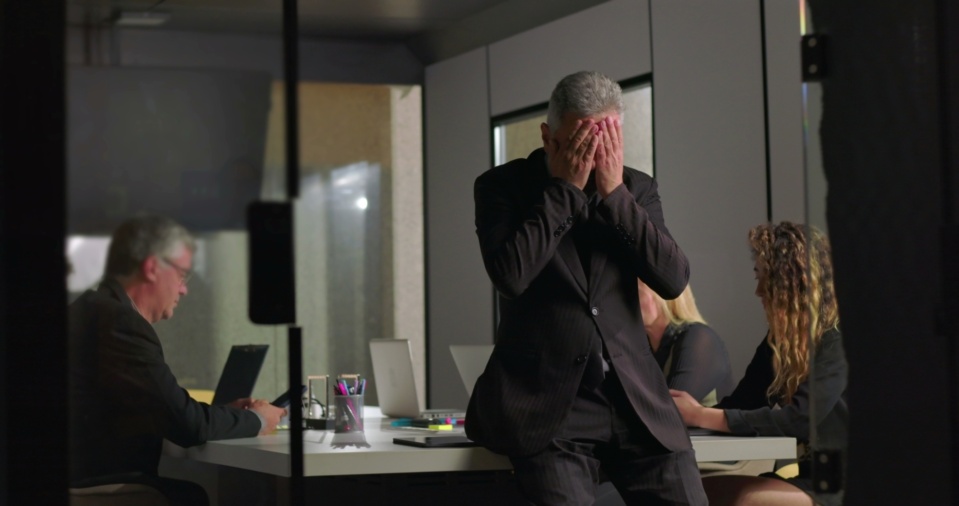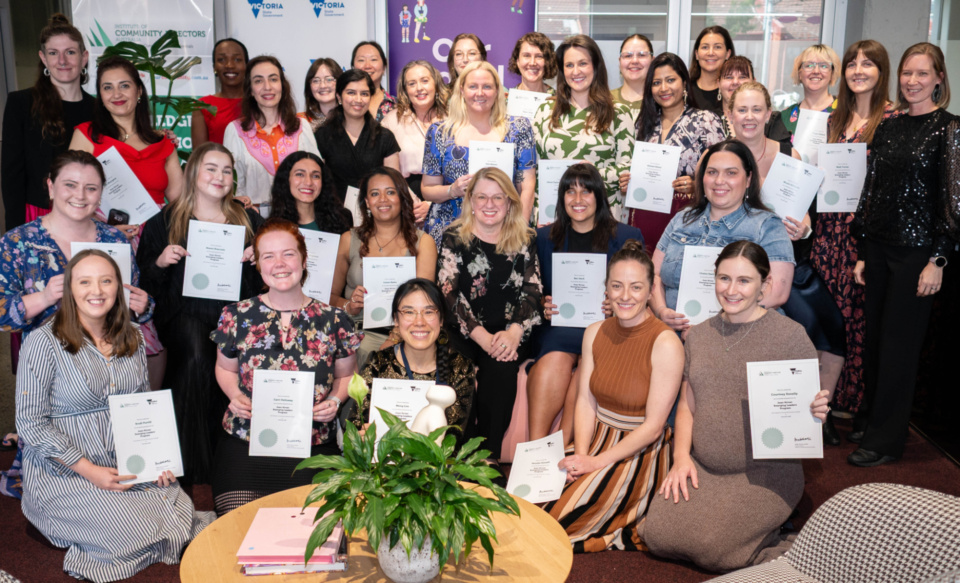
Why meetings can harm employee well-being
Posted on 10 Dec 2025
Anyone working in an organisation knows it: meetings follow one after another at a frantic pace. On…
Posted on 12 Sep 2024
By Matthew Schulz, journalist, Institute of Community Directors Australia

A unique Australian investment vehicle is on track to give more than $100 million to Australian youth charities while making healthy profits for investors.
An Australian investment firm with a strong philanthropic focus is seeking new not-for-profit partners to tackle child abuse, neglect and maltreatment, with an estimated $5 million in annual grants to be made available.
Nearly 10 years after its inception, Future Generation’s philanthropic model involves carving off a small slice (1%) of its $1 billion asset base each year for charities.
It is expected to comfortably reach a $100 million funding milestone by 2030.
While the primary purpose of the fund is to make money for shareholders – and by recent reports it appears to be doing so handsomely – a significant secondary purpose is to help charities, with the focus on supporting children and youth at risk, and promoting wellbeing and preventing mental ill-health, also for young people.
Dr Philip Lowe, former governor of the Reserve Bank of Australia and now chair of Future Generation Australia (FGX), said there were compelling reasons to act.
“Severe childhood trauma has lifelong and profound impacts. Australians who experience childhood maltreatment and abuse are far more likely to face physical and mental health problems; social, behavioural and educational issues; and to have high health service utilisation. Not only is this devastating for the individuals involved, but it is costing the Australian economy tens of billions of dollars each year,” Dr Lowe said.

“Childhood is the foundation for life and really affects a person’s future trajectory. At Future Generation, we believe that every Australian child deserves the opportunity that a safe and positive childhood offers – and I know our shareholders do too.”
The funding is helping young people like Chenara, 16, to turn their lives around.
The teen is a beneficiary of the BackTrack program, which received $484,000 from Future Generation for its 2023 program. The charity was founded in Armidale, NSW, and its mission is to do “whatever it takes, for as long as it takes” to keep vulnerable kids alive, out of jail and with a chance of chasing their dreams. The program offers education, training, diversions, accommodation and jobs.
In a case study featured in an impact assessment of Future Generation funding, Chenara revealed she had struggled with a chaotic home life and, after her grandfather died, started getting into trouble at school.
“I went through a lot growing up. My parents fought constantly and their abuse of each other really affected me. In 2022, when my Pop passed away, I stopped being the bright little girl I was. I started to muck up in school, get into fights and even do crime. Nobody was looking out for me, so most nights I stayed on the street or couch-surfed. I was constantly thinking about suicide, and I even tried to end my life more than once. I knew I wasn’t okay and needed help.
“Someone recommended BackTrack, and since then, my whole life has changed. BackTrack makes me feel like I’m appreciated and a part of their family. My favourite part of the BackTrack program is giving back to the community – going to people’s houses and helping with things that they can’t do.”
For over a decade, Future Generation’s philanthropic model has granted a 1% share of its $1 billion asset base each year to charities. The firm is expected to have distributed $100 million in grants by 2030.
This week, Future Generation invited expressions of interest from not-for-profits addressing child maltreatment. The deadline for applications for funding is December 9.
While Future Generation’s global and Australian investment arms primarily aim to make a profit, a significant secondary goal is to give, with a focus on supporting children and youth at risk. Currently two dozen organisations are listed as Future Generation’s “social impact partners”.
Until now, Future Generation’s Australian investment arm has provided help to a mix of foundations, funds and organisations focused on youth and children.
Since 2014, it has provided $43 million for organisations such as the Raise Foundation, the Australian Children’s Music Foundation and Giant Steps. In 2023, Future Generation Australia gave $5.2 million to its social impact partners.
But the beneficiary mix is set to change, a review of Future Generation Australia’s social impact goals having led the organisation to decide to divert more funds to tackle severe childhood trauma.
Prevention is such a priority because for many reasons economically, prevention is a lot more cost effective than treatment services."
"Despite compelling evidence about the scale of adverse childhood experiences and their lifelong impacts, the response by governments remains piecemeal and reactive."

Unlike other impact investors, Future Generation does not invest in impact-related activities such as social enterprises seeking a dual financial return and social benefit. And unlike many corporate models driven by ESG (environmental, social and governance) commitments, the fund doesn’t simply donate a slice of the profits.
Instead, it invests in Australian and global stocks. The trick that enables millions to go to charity is that Future Generation’s fund managers – a roll call of some of the country’s most sought-after investment experts – do their work for nothing.
As a result of that pro bono support, the organisation doesn’t need to pay fees for management, performance, service providers, board members or investment committees. Those savings are redirected into doing good.
Importantly, the commitment to giving away assets means profit fluctuations don’t affect payments, meaning funds for not-for-profits are consistent and can involve multi-year commitments.
Over nearly a decade, Future Generation’s two main investment vehicles have given $87.2 million to charity, including $6.8 million in the 2023 financial year – a sizeable chunk of its 2030 target of $100 million.
Future Generation’s social impact strategy aims to fund areas with a high potential for social good that are overlooked or underfunded by other donors, particularly governments.
The call for public expressions of interest is a first for Future Generation Australia and was influenced by last year’s landmark Australian Child Maltreatment Study (ACMS).
The ACMS study, which surveyed 8,500 Australians, found that more than a quarter of young people aged 16–24 had experienced between three and five types of abuse during childhood.
Supporting findings from the Australian Institute of Family Studies showed that 72% of Australian children had been exposed to at least one adverse childhood experience by age 11.
Future Generation CEO Caroline Gurney said not enough was being done to address the problem.
“Despite compelling evidence about the scale of adverse childhood experiences and their lifelong impacts, the response by governments remains piecemeal and reactive. At Future Generation, we are determined to change that – with the help of our army of mum-and-dad shareholders.”
Future Generation’s social impact director, Emily Fuller, said the firm’s funding plan would “lean into the more emergent field of positive childhood experiences”, and that “healthy relationships and connection” had been shown to help children overcome trauma.
“We will focus on children aged 0 to 14, and their parents, because this age bracket captures key development phases. Within that, we are looking particularly for partners that work with children aged 8–14 because they have traditionally received less attention and funding than the 0 to 3 or youth/adolescent stages. We believe that this is the area where Future Generation Australia can make the most meaningful and useful contribution.”
The fund said it would target a “portfolio” of small to mid-sized not-for-profits with proven track records and scope to scale their impact, as part of the expression of interest process.

Future Generation companies include Future Generation Australia (FGX) and Future Generation Global (FGG), which invest in Australian and global stocks respectively.
There are currently 24 organisations involved as social impact partners. For Future Generation Global these are:
For Future Generation Australia, the beneficiaries are:
The funding round is expected to create opportunities for a mix of national and community-based organisations, including Aboriginal community organisations.
Future Generation is expected to track the progress of each partner, as well as examine their collective impact, with the aim of demonstrating the value of the investment to others, especially governments.
The fund’s global arm (Future Generation Global, or FGG) recently reported on the social impact of its grants, which helped more than 5.3 million young participants through $4.6 million in funding in 2023. It also recently conducted a strategic review of funding, prompting the firm to give less money to large charities and spend more on supporting smaller, higher-impact charities. The Future Generation Global fund now stands as one of the biggest private funders of youth mental health in the country.
Lodge an expression of interest for funding with Future Generation Australia

Another beneficiary of the Future Generation model is Youth Opportunities, which describes itself as an organisation helping Australian youth “to be their best” through personal leadership programs and “wraparound services” available in schools, workforces and for individuals.
Among graduates are sisters Rawan and Bayan, who found a new home after escaping the conflict in Syria.
In a case study featured in the Future Generation impact report, Rawan said moving to Australia was the realisation of a dream, but it also meant, “I no longer had the people I loved to share it with me”.
“I fell into a deep depression that lasted for three years. I went from being a happy girl, always out having fun with friends, to underestimating myself and feeling like I wasn’t good enough to do anything. I acted dumb at school and, at home, just stayed in my room. I couldn’t talk to teachers or students and would fight with my parents all the time.”
She said Youth Opportunities helped her gain the confidence to tackle problems and resolve conflict “in a mature way”.
“These are skills for life! I am now studying to become a teacher and feel excited about the future”.
Her sister Bayan said she was lonely when she first moved to Australia.
“It was a new country, a new language, a new religion, and a new culture. I didn’t know anyone, and couldn’t understand, or talk to, other kids at school.”
But she too gained confidence “to stand up for myself” through the Youth Opportunities program.
“If I didn’t go out of my comfort zone and work with Youth Opportunities, I would never be the person I am today.”
Future Generation has been able to attract some heavy hitters to steer the ship, with Philip Lowe, the former governor of the Reserve Bank of Australia (RBA) chairing Future Generation Australia (his sole board position since leaving the RBA), while Jennifer Westcott, the former chief executive of the Business Council of Australia, joined Future Generation Global as chair late last year.
There’s no doubt the funds are having an impact, because there is evidence.
According to the recently published Future Generation Global Impact Report 2023, which tracked FGG funding over two years, the fund was able to support 14 not-for-profits and more than 5.3 million young people. FGG’s charity focus is on promoting wellbeing and preventing mental ill-health among young people.

The report followed a strategic review of FGG’s funding, which highlighted the fact that existing government funding had been unable to counter a surge in mental health conditions in young people, with as many as 38% of people aged 16–24 years experiencing a mental health problem between 2020 and 2022.
The review prompted FGG to divert funds from larger established charities and direct them to smaller high-impact charities.
FGG now stands as one of the biggest private funders of youth mental health in the country.
Future Generation founder and director Geoff Wilson said the company “has been at the forefront of helping young Australians since it was founded in 2014”.
He described the collection of charities it was helping as “a portfolio of not-for-profits” and said that by measuring their impact, “we continue to be at the cutting edge of philanthropy in Australia”.
Future Generation chief executive Caroline Gurney said that the first year of the report demonstrated the “remarkable” individual and collective impact of FGG’s partners, and the firm would use the data in future to push for more investment in preventing mental ill-health in young people.
The company’s social impact manager, Emily Fuller, said in a video update that there was a good reason for the organisation shifting its focus to mental ill-health prevention.
“Prevention is such a priority because for many reasons economically, prevention is a lot more cost effective than treatment services. Obviously, if you can stop something from happening, or developing, or becoming acute, you save a lot of money over the long term, and morally of course everyone would choose to spare a young person and their family the experience of mental ill health, so unless we are able to front-load some of our investment, the financial bill and the human cost of mental ill health is only going to continue to grow.”
Not surprisingly, not-for-profits are keen to access Future Generation funds, but the process is a rigorous one. Following a strategic review, Future Generation Global conducted an expression-of-interest round that attracted 175 applicants, narrowed down to the 14 selected partners with the help of a youth advisory committee.
It is expected that Future Generation Australia will conduct a similar strategic review of its programs in the near future.

Posted on 10 Dec 2025
Anyone working in an organisation knows it: meetings follow one after another at a frantic pace. On…

Posted on 10 Dec 2025
As a qualified yoga instructor who learned the practice in her hometown of Mumbai, Ruhee Meghani…

Posted on 10 Dec 2025
Community Directors trainer Jon Staley knows from first-hand experience the cost of ignoring…

Posted on 10 Dec 2025
Stressed, overwhelmed, exhausted… if you’re on a not-for-profit board and these words sound…

Posted on 10 Dec 2025
The Institute of Community Directors Australia trains over 22,000 people each year, which gives us…

Posted on 03 Dec 2025
Many not-for-profit (NFP) board members in Australia are burnt out, overwhelmed and considering…

Posted on 26 Nov 2025
A roll call of Victoria’s brightest future leaders has graduated from a testing and inspiring…

Posted on 12 Nov 2025
At the Institute of Community Directors Australia, we believe that stronger communities make a…

Posted on 12 Nov 2025
Like many Community Directors members, Hazel Westbury is a community leader who isn’t easily…

Posted on 11 Nov 2025
I’ve seen what happens when fear of conflict wins out over taking a principled stand.

Posted on 11 Nov 2025
‘It’s not a question of enough, pal. It’s a zero-sum game. Somebody wins and somebody loses’.

Posted on 11 Nov 2025
Progressive economic Richard Denniss believes the constant hunt by governments for the political…